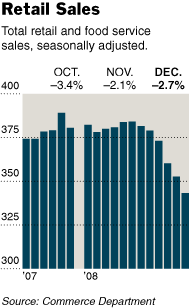
I frequently hear the following from my urban friends:
Why can't we just be more like Europe? Most often, the statement is a prelude or a conclusion to a discussion about transportation issues. And usually the statement either implies or is stated explicitly that European transportation systems are vastly superior to ours. The unstated is that Americans rely on cars and Europeans don't.
Of course, when I think about every time I have been to a major European city, Paris, Rome, Madrid, Vienna, Berlin, Copenhagen, all I ever see are cars, cars, cars, but the fact the Europeans have a well developed and sophisticated rail, light rail, and street car system is the envy of every urbanite I know.
Here are some interesting facts: Europe is 3, 930,000 square miles. The United States is three times that area, 9,161,923 square miles. The European population, however, is 731,000,000 and the United States is 303,824,640. Hmmm. So Europe has more people and less area. Density. Urban planners will drool, thinking all that density fits neatly into a city. Wrong. In fact, Europe has been suburbanizing at the same rate during the same time period as the United States. And, as you can see by the graph above, many European countries have more cars per capita than the United States! Heck even New Zealand has more cars per capita than the US. In fact, just as we use our cars as the default method of transportation (we use them 88% for motorized transportation) Europeans also default to passenger cars (78% of the time).
Less than 100 years ago, many of our National Parks were opened for tourists because of trains. Great Northern Railway opened up Glacier National Park, Northern Pacific helped build Old Faithful Lodge in Yellowstone, and the Santa Fe Railroad took visitors to the steps of El Tovar in The Grand Canyon. Trains rode up and down the eastern seaboard, taking snow bound residents to the sunshine of Florida. But in those days, whole families could ride trains, meals were served, heck even dogs could accompany their owners. In Europe this is still true.
However, now days other than Glacier National Park, with it's three train stops, and parts of Vermont, there are very few wild lands accessible by mass transportation. If we begin to limit that accessibility, making it too expensive for people to visit, we become a truly class-based society, where only the rich can get outside the urban areas. Sounds like something out of a 19th century Dicken's novel.
Our inclination in this country to ascribe one size fits all solutions simply is not part of our culture. If we want to increase our mass transit capacity we must also understand not everyone is urban, not every one commutes on a 9-5 schedule, many families have after school sports, youth activities, and child care duties. Our communities have not been built to address those needs and the current in vogue "transit based" communites seem, well, uninviting. The issues to make all this transit infrastructure work in the US are multi-layered, complex, and structural, requiring more time to work on than simply shoving money into an economic stimulus package.
But really, if we want to use Europe as an example, we also need to realize we'll be laying train tracks inside National Parks, through old growth forests, wildlife habitat, and essentially opening up this country far more than we have agreed to in the past 30 years. It is not a decision we can make quickly. In some regards, ironically, it has been the automobile that has allowed us to conserve so much land and wildlife habitat, simply because we haven't had to develop it so everyone can get there. Now, that's an interesting thought.
The other issue is, of course, that many of the same folks who advocate increasing our mass transportation infrastructure also rarely use the transit systems we now have. The current mayor and all of the Seattle City Council members drive to work. Their excuses are what everyone's excuse is: I need a car for meetings (or the mayor's is that he needs a car for security!). So, I ask, how are the policy makers different from every one else? In Europe, you actually see the policy makers in mass transit, not driving around in large black SUV motorcades! I would suggest before we listen to our decision makers about transit decisions, we insist they use the current systems for a little longer than a photo op.
Remember, in terms of dollars, transportation systems, as in mass transit, are subsidized by taxpayers to the tune of .82¢ per mile. Taxpayers subsidize passenger cars .20¢ per mile. There has got to be a better way for us to get value out of mass transit and national transit systems. But I think it requires some good thought, not knee jerk reaction because there may be money on the table.
In the meantime, maybe, then we should not be objecting to so many shovel ready projects. Repairing a few bridges is not that high of a cost to pay.
 With all the hype on all sides of the political spectrum about stimulus and jobs, here is a short piece from a mid-size business owner (who actually manufactures something...) on why his business is not ready to hire, yet.
With all the hype on all sides of the political spectrum about stimulus and jobs, here is a short piece from a mid-size business owner (who actually manufactures something...) on why his business is not ready to hire, yet.


















